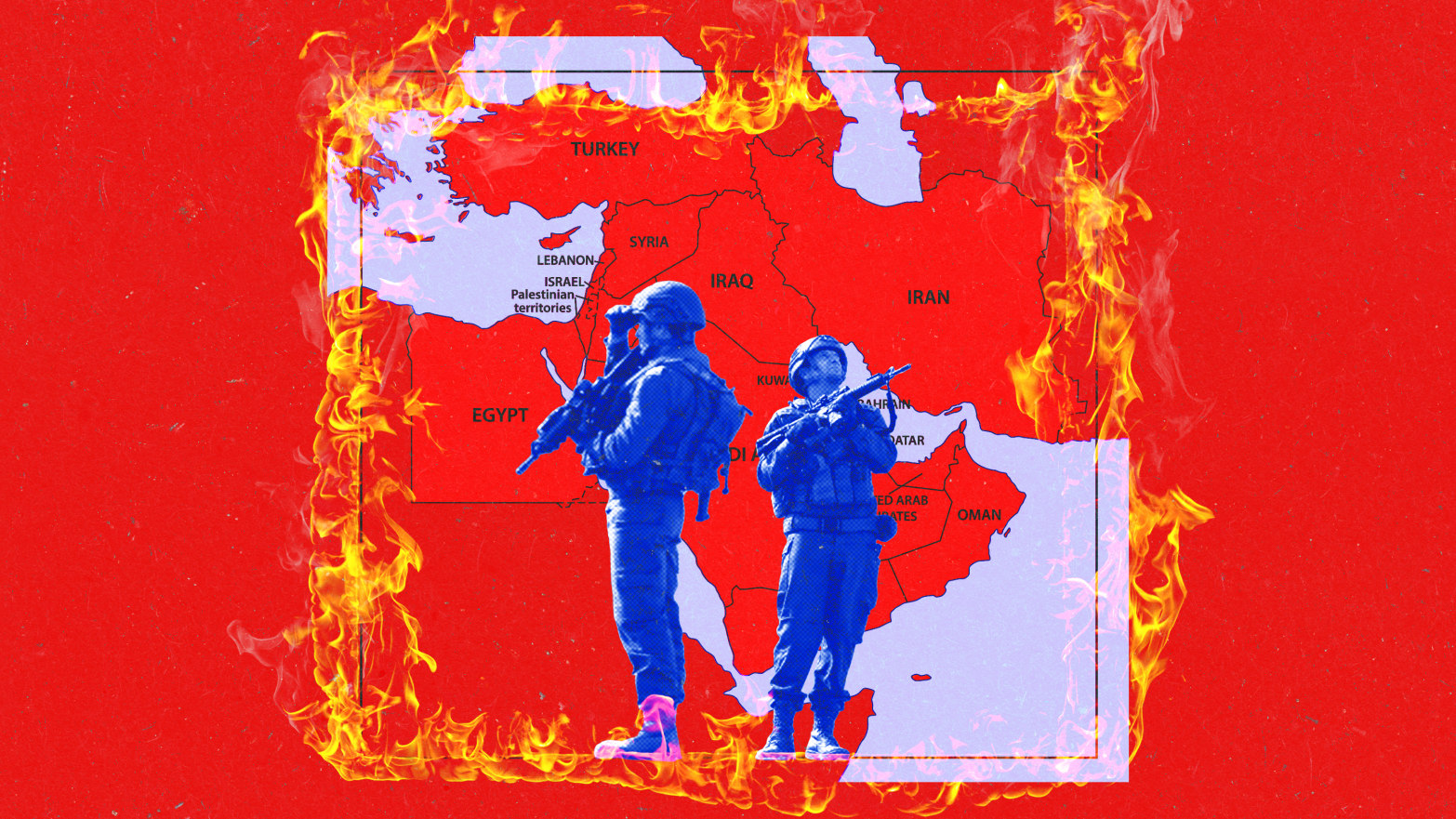
*Editor’s note: On March 4, 2022, Russia enacted a law that criminalizes public opposition to, or independent news reporting about, the war in Ukraine. The law makes it a crime to call the war a “war” rather than a “special military operation” on social media or in a news article or broadcast. The law is understood to penalize any language that “discredits” Russia’s use of its military in Ukraine, calls for sanctions or protests Russia’s invasion of Ukraine. It punishes anyone found to spread “false information” about the invasion with up to 15 years in prison.
The Vice Rector of Russian Foreign Ministry Diplomatic Academy, Oleg Karpovich — on the true reasons for the conflict in the region and Russia’s role in normalizing the situation.
In a few days it will be exactly one year since the Hamas movement undertook its terrorist attack against Israel, which set in motion a chain of tragic, if not catastrophic, events in the Middle East. Today, there’s no short supply of various analyses, the authors of which, depending on their sympathies, put the blame for the incessant violence on either the Palestinian radicals or the nationalists in the Israeli government.
Now, as the Jewish state takes military action on several fronts and is likely preparing for escalation — direct confrontation with Iran — the root causes of the ongoing tragedy are often forgotten. However, to stop the bloodshed as soon as possible and to avoid repeating it, we need to look in depth at the sources of the current crisis. Before answering the question “what should we do,” we need to settle on “who’s to blame.”
The answer is obvious to any impartial observer. More than 30 years ago, when the Cold War ended, the U.S. claimed the role of the moderator of processes in the Middle East. It’s worth noting that Russia not only didn’t intervene, but supported Washington’s effort. During the years of “Kozyrev’s diplomacy” many domestic liberals believed that the “end of history” would put everything in its place, allowing warring countries, peoples and belief systems to leave behind old grudges through the love of the foundations of “market democracy.” But soon enough, Moscow and other centers of power in the changing world came to a realization: The U.S. is not interested in real stabilization of the situation in the Holy Land and its vicinity.
Based on the “divide and conquer” logic, successive American administrations simply tried to extend their influence over the Middle East under the guise of peacekeeping, turning it into yet another geopolitical prey. And only after the Iraq fiasco, when the U.S. public grew cold toward democracy export experiments, did the Washington establishment decide to gradually leave the region — maimed by the long-standing adventures of the U.S. — to its own devices; however, it didn’t fully succeed in turning this intention into reality.
The result of such irresponsible behavior of the failed world hegemon is apparent. The people of countries such as Palestine, Lebanon and Yemen, having lost hope for foreign help, underwent significant radicalization — and as more time passed, they believed less and less in the possibility for compromise and peacemaking with both the West and traditional Israeli opponents. In turn, power in the Jewish state was seized by the “party of war,” which came to the conclusion that it doesn’t have to seek inconsistent Washington’s approval. In other words, American elites, dependent on the pro-Israeli lobby, won’t desert their allies no matter what. Iran, tired of the perpetual cat-and-mouse games, ranging from declaring Tehran a part of the “axis of evil” to promises (which were demonstrably broken soon after) of lifting sanctions, also switched to more decisive action, dictated by national interests rather than hopes for Western benevolence.
With the distancing of the U.S. itself from the Middle Eastern problems (which, in turn, was the result of its fascination with the “Ukrainian project”) it became apparent that not a single international structure, including the United Nations, has enough authority to settle the critical mass of differences. It’s unsurprising that the secretary-general of the U.N., António Guterres, demonstrated not only his complete powerlessness as the crisis spread, but also found himself under Israeli sanctions, which may well be of a precedent-setting nature.
It’s very tempting to say that the wars in the Middle East are of an eternal nature and they will continue on in one or another form in the foreseeable future. But, as they say, we need to become realists and demand the impossible. Through the efforts of Russian diplomacy and our partners, right now, month after month, the structures that reflect the global shift toward multipolarity continue to strengthen — first of all, BRICS and the Shanghai Cooperation Organization. Wielding significant influence over the situation in the Global South, the leading countries of the global majority will do everything to rebuild the post-war framework of international security destroyed by the West and leave the legacy of neocolonialism in the past — beginning with Eurasia.
It is Russia, China and other partner states who enjoy the undisputed authority and intellectual potential to produce enduring formulas for regulating Middle Eastern conflicts. In this situation, the main task is to curb to a minimum the destructive participation of the West in provoking further escalation in the region. After purging the regional policy of Western influence, we, with our friends, will be able to collectively transform this troubled and volatile part of the planet, bringing to it stability, peace and prosperity, so long deserved by the local population.

Leave a Reply
You must be logged in to post a comment.